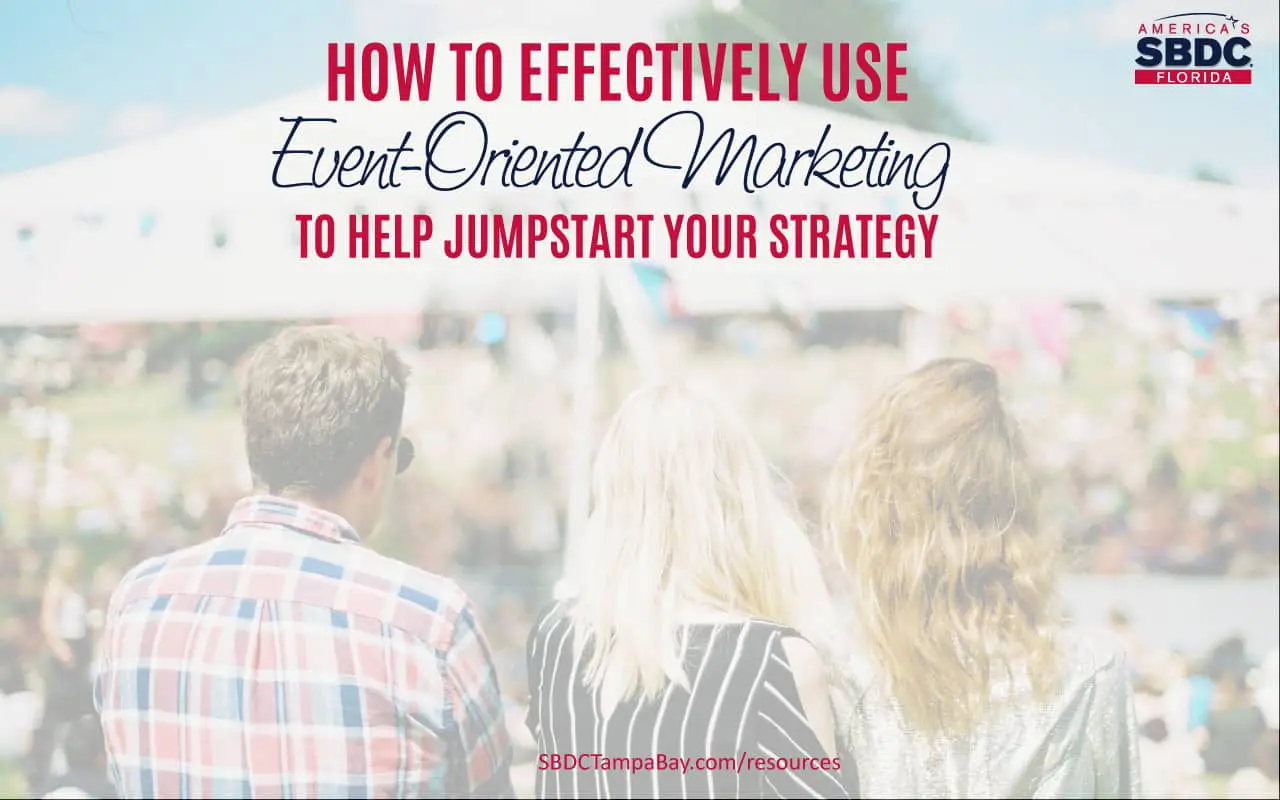Using Event-oriented Marketing to Help Jumpstart Your Strategy
by Kurt Forster | June 11, 2019
No matter what the product or service is, one thing that all business owners understand to be universally true is, in order to be successful, you must know how to effectively get your message out to the masses.
You need to know your target audience and how to communicate with them. Many business owners may have a marketing plan in place, but may be missing out on opportunities to expand and reach new potential customers.
Event-oriented marketing helps you do just that. It helps you interact with customers in new and invaluable ways that build bonds of trust and brand recognition.
Where to Go
Depending on your product or service, it is advantageous to participate in as many events as are relevant to your company. Examples of event-oriented and experiential marketing include, but are not limited to:
- Industry tradeshows
- Chamber of Commerce events
- Charities
- Sporting events
- In-house/On location demonstrations, open houses, and celebrations
Of course, attending events and tradeshows is not really a new concept for most businesses. The disconnect tends to be in effectively promoting the company’s presence. Like building marketing campaigns to promote your product or service, you need to also build individual, thorough campaigns for each event.
What to Do
If you are going to participate in these events, you need something that will allow your business to stand above the rest. A great way to do this is to create a special promotion for the event.
Utilize your normal marketing channels — such as social media and email marketing – to spread word of the promotion to help entice existing, loyal customers to attend the event and to be an extra voice of support in the crowd.
When to Do It
Effectively promoting participation in an event or the special offer you hope to promote doesn’t happen the night before. You must properly build a campaign for each event from start to finish.
It is best to begin spreading the word at least a month in advance of the event. This allows your customers time to mark their calendars and clear any obstacles that would keep them from attending. It also builds anticipation and excitement.
It Shouldn’t Stop There
Creating an effective event-oriented marketing plan doesn’t stop at the event. There are many opportunities that expand past the scope of the event. For example, you can expand the special offer you created for a month after the event for customers who were unable to attend. There is also potential for extra content creation for your blog, website or social media platforms.
Typically, businesses try to squeeze in at least one event per year. This is a mistake, especially for those businesses who don’t do a lot of marketing for their company to begin with, or if their marketing has gone stale.
Ideally, you want to do an event once a quarter and you want the events to vary. This allows loyal customers who are not attracted to one event to get excited for an upcoming event that fits their needs more.
It is important for every company to incorporate event-oriented marketing into their quarterly strategy. It helps cultivate loyalty and breathe new life into stale strategy. Look at your audience and evaluate interests to help guide you in what events your company should be investing resources.






Kurt Forster
Consultants, Forster, PinellasFlorida SBDC at Pinellas County Economic Development
Specialty: Marketing and Strategic Planning, Business Planning, Financial Management, Capital Access
Kurt Forster found his interest in business consulting and training working at the USF Center for Organizational Communication while completing his master’s in communication. Later, he put that experience to use, owning and operating two market research businesses. The entrepreneurial spirit stuck with Forster even while working in large organizations, opening new offices for St. Petersburg College and later the State of Wyoming’s Business Council. Additionally, he led marketing efforts to redevelop downtown St. Petersburg as the Director of Marketing for Bay Plaza Companies. He developed his enthusiastic facilitator style working in a variety of teaching positions from alpine ski instructor and Sea World animal trainer to college instructor. Forster is also a certified instructor for NxLevel Business Training Programs and Kauffman Foundation FastTrac TechVenture Program, and is a Certified LivePlan Expert Advisor and a Certified Profit Mastery Facilitator. Forster also founded Common Ground, a downtown development organization in St. Petersburg, and assists a variety of technology and entrepreneurship organizations throughout Tampa Bay.